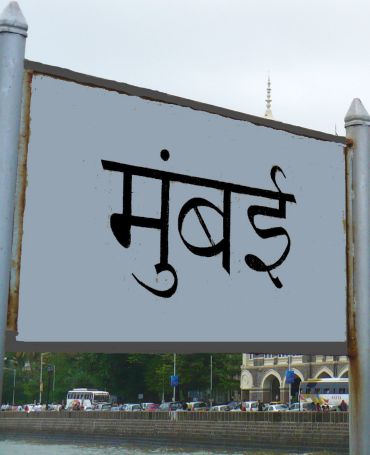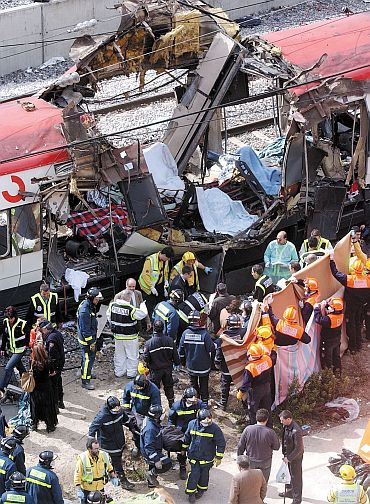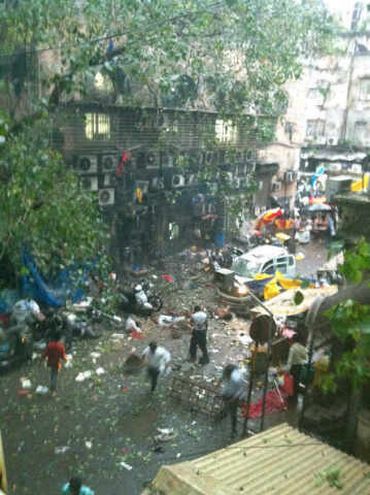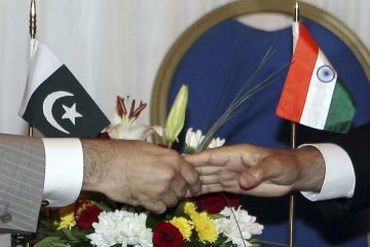
Security expert B Raman say that the blasts in Mumbai show the continuing deficiencies in our counter-terrorism capability.
Prime Minister Dr Manmohan Singh's reported decision to visit Mumbai in the wake of the new series of orchestrated and timed explosions on July 13 reflects his embarrassment and concern over the blasts.
The embarrassment arises from the continuing deficiencies in our counter-terrorism capability even after the much-vaunted improvements introduced after the 26/11 strikes.
The deficiencies relate to the preventive and surveillance capabilities of our intelligence agencies and the police. The concern should be over the likely negative political impact of the success of the terrorists in circumventing the security measures.
The government's credibility in relation to counter-terrorism is likely to suffer further erosion -- particularly in Mumbai, whose population has been the target of five instances of high casualty terrorist attacks --in 1993, 2003, 2006, 2008 and 2011.
...

The argument about the difficulties faced by the intelligence and security agencies in preventing terrorist attacks will not carry conviction to the people. While they may accept one or two surprise attacks, they would find it difficult to accept repeated attacks not only in Mumbai but also in other cities.
Other cities -- New York. Madrid and London -- have had isolated mass casualty attacks, but the police was able to ensure that there were no more attacks.
It would be natural for the public to ask why this has not been possible for our security agencies.
Despite arrests after past attacks, terrorist organisations still have at their disposal a seemingly unending stream of recruits who are willing to be trained and used to carry out attacks.
A worrisome aspect is that our security agencies and the police have been unable to quantify the total number of trained terrorists still available to the organisations and neutralise them.
They have also been unable to identify and block the sources of recruitment.

The attacks of July13, 2011-- like those of 1993, 2003 and 2006 and unlike those of 2008 -- were multi-targeted and well-orchestrated with a single modus operandi.
They required good motivation and some training and not sophisticated expertise.
The 2008 attacks were commando-style and multi-targeted with multiple modus-operandi -- use of explosives and hand-held weapons and hostage-taking.
They required considerable training and sophistication. Hand-held weapons were used in addition to explosives in 1993 too.
No claim of responsibility has so far been made.
There has been no electronic interception of suspect messages -- electronic chatter as professionals call it -- which might give a clue as to who might have been responsible. The security agencies are, therefore, groping in the dark in identifying the organisation responsible.
Coastal security and immigration controls have been tightened up after the 26/11 terrorist strikes. The possibility of outsiders sneaking in to carry out the attacks is somewhat low.
The greater possibility is that the attacks were carried out by some people normally resident in India -- maybe, Indian nationals or foreigners. The investigating agencies should keep an open mind and avoid jumping to conclusions.
The reports about a wired body and a separated head being found in one of the spots need to be carefully investigated. If these reports are correct, this would be a disturbing indicator of an act of suicide terrorism with possible foreign influence.
If these reports are ultimately ruled out as not correct, the only other possibility is of timed strikes, which might have been carried out either with mechanical (clocks or the alarm mechanism of a mobile telephone) or with chemical timers.
The 1993 strikes were carried out by fugitive gangster Dawood Ibrahim's men with chemical timers of US-origin obtained by them from the Inter-Services Intelligence.

The reported use of ammonium nitrate speaks of a lethargy in imposing checks on the sale of nitrogenous fertilisers despite this being repeatedly used as the explosive material by different terrorist groups in copy-cat acts in different countries of the world.
Western countries have imposed checks on the sale of nitrogenous fertilisers. In Canada, sleeper cells were caught when they sought to buy nitrogenous fertilisers. It is not clear whether we have imposed similar checks.
Whether it is the Indian Mujahideen or any other organisation which is ultimately found to have been responsible, it wanted to disprove the official claims of having broken its back.
This may not remain a one-city phenomenon. We must be prepared to prevent the danger of similar attacks in other cities.
We should not allow the latest blasts to disrupt the on-going dialogue process with Pakistan unless there is concrete evidence to show that either the ISI or Pakistan-trained elements were involved.